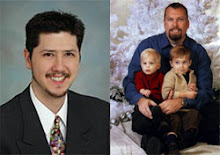One of the significant problems I see with residential treatment care is the fact that the residents are socialized in a group consisting of dysfunctional children all in various states of mental, emotional, and behavioral crisis. Each new client is thrown into a tempest of "feral" kids, ones who display ineffective and quite destructive social and coping skills, ones who have little to no opportunity to observe and model appropriate interpersonal and internal skills.
And positive results are expected?
If there is a way to integrate children in residential treatment care with other children who possess and exhibit appropriate and effective social and coping skills—without unfair disruption or detriment to the lives of the "normal" kids—I would sure like to know. Perhaps some organization has run an effective program of this type somewhere out there, perhaps in my own back yard. (Perhaps a multi-staged program, the kind that would require several residential units and probably be too cost-prohibitive or complex for most facilities to run?)
Family-based therapy (rehabilitation of the children, retraining of the parents) and foster homes and various sorts of therapy, I know, can provide effective social and coping skills training. But once a child enters a residential treatment care program, it's like she joins a tribe of dysfunction. Though the program structure, rules, and limits—when implemented appropriately—provide a measure of stability and consistency, the peer framework encourages a dysfunctional social milieu, particularly when the residents are kept grouped together for the better part of each day as well as confined together in a restricted space. And especially when the kids are forced to engage in group therapy sessions (often run by professionally unqualified and inadequately trained direct care workers), where they are pushed to air their secrets and shames in front of other children, some who will use their peers' disclosures to maliciously hurt them, as well as others who chronically disrupt the groups so much that they become exercises in behavior management instead of actual therapy.
Who, anyway, could get along in such close quarters with a group of even fully "well-adjusted" people? If you are familiar with any "reality" TV shows in which a number of adults are thrown together into an artificial and confined milieu—not unlike children in residential treatment care—you've seen that the initial good will and smiles soon break down into resentments and fights. So how does anyone expect different results from distressed children?
So, now that we've defined one of the significant shortcomings of residential treatment care, what are the practical solutions? I would sure like to know.
(Another one of the problems, by the way, is a paucity of research and resources on residential treatment care—something we're trying to change through Healing Embrace. Maybe there are programs out there that implement a successful socialization aspect, but finding them is the challenge.)
Anyone out there have any answers? For the sake of children, please share them!
© 2008 David Lee Cummings / Healing Embrace
Subscribe to:
Post Comments (Atom)

No comments:
Post a Comment